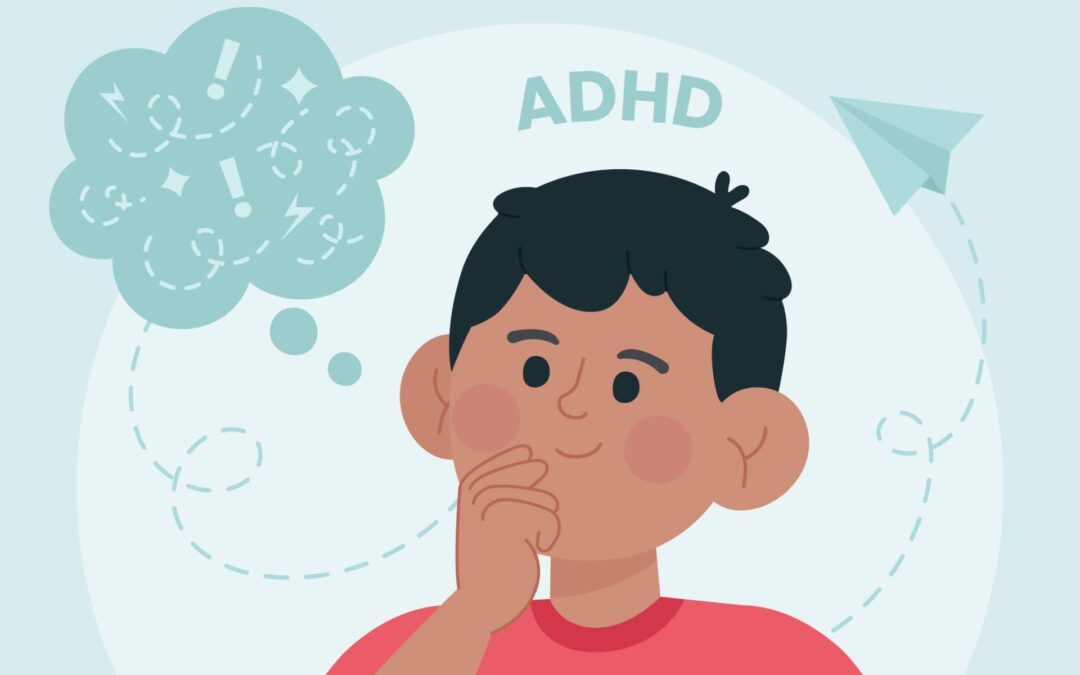Attention Deficit Hyperactivity Disorder (ADHD) affects both attention and emotional regulation, presenting significant challenges in daily life. To illustrate these difficulties, imagine a remote control for your TV that’s malfunctioning. Sometimes the volume button works perfectly, while other times it’s erratic or unresponsive. This analogy helps to understand how ADHD impacts attention and emotional regulation.
Attention Issues: The Erratic Remote
Think of attention in ADHD as the volume control on a remote that doesn’t always respond consistently. When the remote is working properly, you can easily adjust the volume to the desired level, whether you need it loud for a movie or soft for background noise. However, with a malfunctioning remote, you might experience:
– Inconsistent Responsiveness: Just like the volume control that sometimes fails to adjust, individuals with ADHD may find it difficult to consistently focus on tasks. Attention can fluctuate unexpectedly, making it hard to stay on task or complete activities efficiently.
– Difficulty Fine-Tuning: A malfunctioning remote might struggle to land precisely on the right volume setting, leading to frustration. Similarly, people with ADHD might have trouble fine-tuning their focus, leading to challenges in prioritizing tasks and maintaining concentration.
– Frequent Interruptions: Imagine the volume randomly changing or jumping. This mirrors how individuals with ADHD might experience frequent interruptions in their attention, such as getting easily distracted by external stimuli or internal thoughts.
Emotional Regulation Issues: The Unreliable Remote Control
Now, picture the remote’s power button being temperamental. Sometimes it turns the TV on or off as expected, but other times it’s unresponsive or acts erratically. This inconsistency can be likened to emotional regulation challenges in ADHD:
– Fluctuating Emotional Intensity: Just as the remote might unpredictably turn the TV on or off, individuals with ADHD might experience intense emotional reactions that are difficult to control. Their emotions can swing rapidly, making it hard to maintain emotional balance.
– Difficulty Controlling Reactions: With an unreliable remote, you might struggle to manage the TV’s power, leading to frustration. Similarly, people with ADHD might find it challenging to regulate their emotional responses, leading to outbursts or heightened stress in response to
everyday situations.- Delayed or Overwhelming Responses: Sometimes, the remote may delay in responding or respond too strongly. This mirrors how ADHD can affect emotional regulation, where responses to emotional stimuli might be delayed or disproportionately intense, impacting relationships and daily functioning.
Managing ADHD: Seeking Stability
Just as you would troubleshoot a malfunctioning remote by checking the batteries, connections,or replacing it, managing ADHD involves addressing attention and emotional regulation challenges through various strategies:
– Professional Support: Seeking help from healthcare professionals, such as psychologists or psychiatrists, can provide tailored strategies and treatments to manage ADHD symptoms effectively.
– Therapeutic Interventions: Therapy, including cognitive-behavioral therapy (CBT), can help individuals develop coping strategies for improving attention and regulating emotions.
– Medication: For many, medication can stabilize attention and emotional responses.
– Lifestyle Adjustments: Creating structured routines, using organizational tools, and practicing mindfulness can help improve focus and emotional stability.

